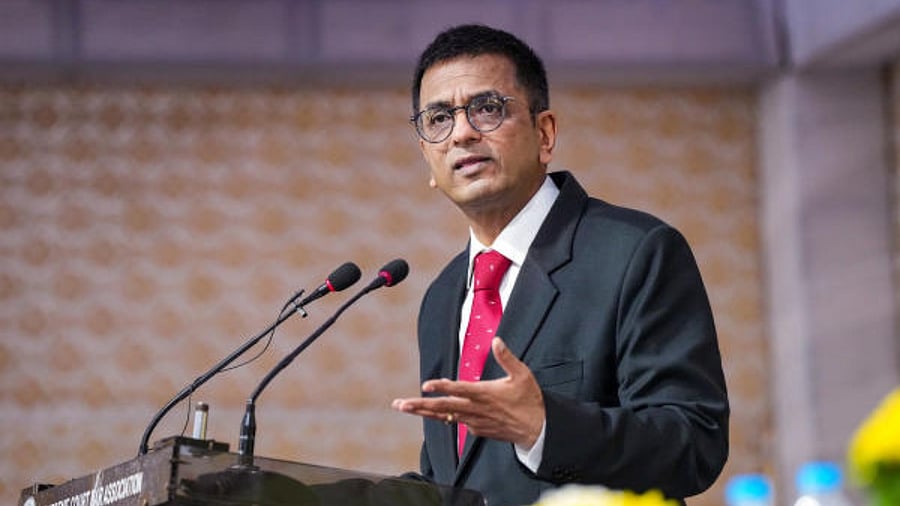
Chief Justice of India D Y Chandrachud on Saturday said judges in India have a crucial role in making dialogue with society to push for social change while expressing concern over incidents of suicides of students from marginalised communities.
In his keynote address at the 19th Annual Convocation of the National Academy of Legal Studies and Research University of Law, Hyderabad (NALSAR), he said research shows that most students, who committed suicides are from Dalit and Adivasi communities.
Judges in India have a crucial role in making dialogue with society inside and outside the courtrooms to push for social change, he said.
He said educational curriculum must inculcate a sense of compassion amongst students and academic leaders must also be sensitive to the concerns of students.
“When students leave their homes, it becomes the responsibility of educational institutions to establish a bond of institutional friendship with students. We must also realise that different students face different challenges. Only recently, I read about the suicide of a Dalit student at IIT Bombay, it reminded [me] of the suicide of an Adivasi studying in a national-level university last year,” he said.
"My heart goes out to the family members of these students, but I also have been wondering where our institutions are going wrong, that students are forced to give up their precious lives. In these instances, incidents of suicides of students from marginalised communities are becoming common. These numbers are not just statistics; they are stories sometimes of centuries of struggle,” he said.
Referring to Professor Sukhdev Thorat, one of our senior educationist in the country, the CJI pointed out he has noted that most of the students who died of suicide has been Dalits and Adivasis and it shows a pattern which we must question.
“In 75 years, we have focused on creating institutions of eminence but more than that we need to create institutions of empathy, the term I read in a news article. Some of you must be wondering why the Chief Justice is speaking on this issue, well because I think, the issue of discrimination is directly linked with lack of empathy in educational institutions,” he said.
He said judges cannot shy away from social realities and instances of judicial dialogue are common across the globe.
“When the Black Lives Matter movement emerged in the US, after the murder of George Floyd. All 9 judges of the Washington Supreme Court released a joint statement addressed to the judiciary and the legal community on the degradation and devaluation of black lives in the US,” he said.
“In similar ways, judges in India have a crucial role in making a dialogue with the society inside and outside the courtrooms to push for social change,” he said.
He said his effort was to throw light on structural issues which confronted our society, therefore promoting empathy should be the first step that educational institutions ought to take.

